ARTICLE AD BOX
1 hour ago
Paul Burnell,BBC News, Salford

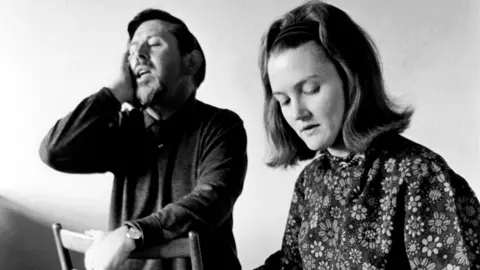 Getty Images
Getty Images
Seeger said she and MacColl performed the song together "for decades"
A long-lost verse of one of folk music's most famous songs is to be unveiled by the widow of its creator nearly 75 years after it was first sung.
Dirty Old Town was written by Salford-born folk legend Ewan MacColl for Landscape With Chimneys, his 1949 play about his home city.
Since then, the song has taken on a life of its own, being covered by everyone from rockers Black Rebel Motorcycle Club and Frank Black to country stars Steve Earle and Townes Van Zandt and has even formed the basis of a terrace chant about Liverpool defender Virgil van Dijk.
But it will be given a new lease of life by American singer Peggy Seeger, who married MacColl in 1977, when she reveals a new verse in a one-off performance at Salford’s We Invented the Weekend festival in June.
'Much loved'
She said it would be great for people who knew the song well to hear the verse, which MacColl abandoned in 1951, but admitted it "isn't that good".
"The words are fine, but they just don't scan if you sing it," she said.
"It was written as part of the play, but like a lot of art, if it doesn't work, you drop it."

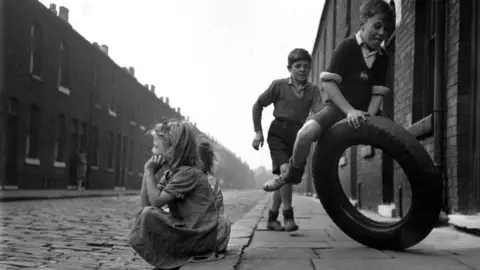 Getty Images
Getty Images
Seeger said the song was firmly about the city in which MacColl grew up
Nevertheless, it will give a new lease of life to a song which has long since become part of the public consciousness, thanks to a pair of covers released by Irish bands almost two decades apart.
All ready much-loved by folk devotees, the song was given an overhaul by The Dubliners in 1968, before being reworked again by The Pogues in 1985.
However, Seeger said she was not impressed with their versions.
"I don’t like what The Dubliners did to it, I don’t like what The Pogues did to it – I think they have lost the loneliness," she said.
"I think they have lost the confusion of a young person walking through it.
"To me, Ewan was reliving his 20s and his late teens so I think it is harder to change."
Such was the success of both versions however that many now assume the song is about Dublin.
Seeger said that while it was firmly about the city in which MacColl grew up, she could understand how it fitted other cities.
"It speaks to everybody from a dirty old broken down industrial city," she said.
"I have no doubt if a Scots band had recorded it, Glasgow people would say it is theirs.
"But Salford was in Ewan MacColl’s bones.
"He took me to his dirty old town within a week of our three-decade partnership."

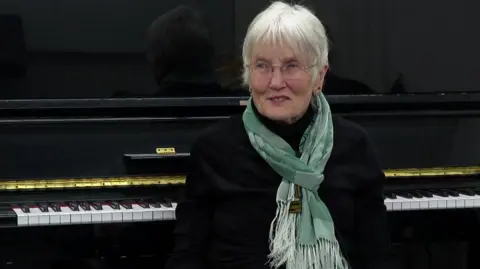
Seeger said MacColl would have been "very surprised and very pleased" by the song's continued success
She said 75 years after it was first written to accompany set changes in MacColl's play, it remained "a perfect song".
"It's a beautiful melody, just four economical verses, and it has been covered by hundreds of singers each in their own way," she said.
There are personal memories too of the song for Seeger.
"It's special because as part of his courtship ritual Ewan McColl brought me to Salford to show what the Dirty Old Town was, because up to that time the only slums I had ever been were the black slums in Washington DC except in DC we already had a throwaway society," she said.
"The streets of Salford were spotless maybe because the women scrubbed their steps in the morning."
She said part of its appeal lay in its language, which was at times unlike what most folk music was offering at the time.
But as he had been an ardent left wing activist since joining in a mass trespass on Kinder Scout to claim the right to roam on private land in 1932, MacColl was not the average folk musician.
"The words 'I'm going to get me a big sharp axe' aren't very folk music, but they speak to his concerns about the struggle of working class people," she said.

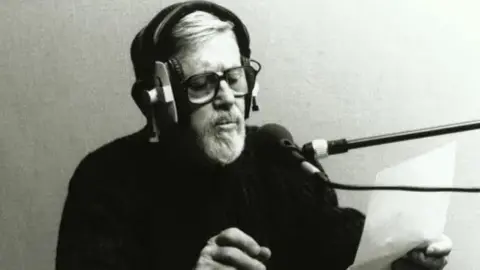
Ewan McColl wrote the song to accompany set changes in his play
She added that the continued appeal of the song would have delighted her late husband.
"I think he would be very surprised and very pleased," she said.
Seeger, an accomplished performer and songwriter in her own right, said she was delighted to be revisiting a song "Ewan and I sang together for decades" at the Salford festival.
A new orchestral version of the song, created by Seeger with her son Neill MacColl and the BBC Philharmonic documentary, will also feature in a documentary which has been made by the festival in collaboration with BBC Archive on 4.
The film, which is presented by BBC Radio Manchester presenter and fellow Salford musician Mike Sweeney, will be broadcast on 6 July.

 7 months ago
65
7 months ago
65

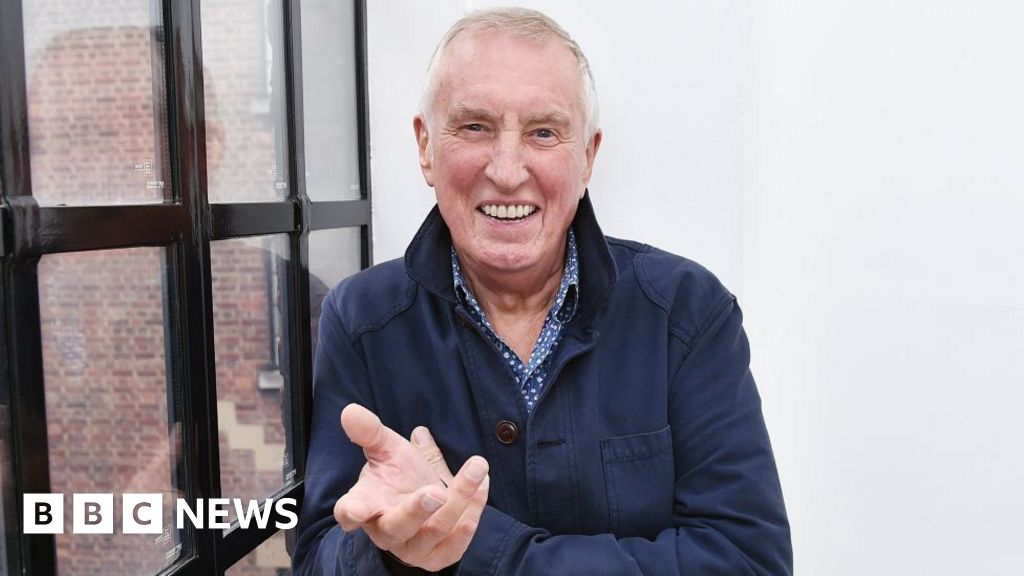
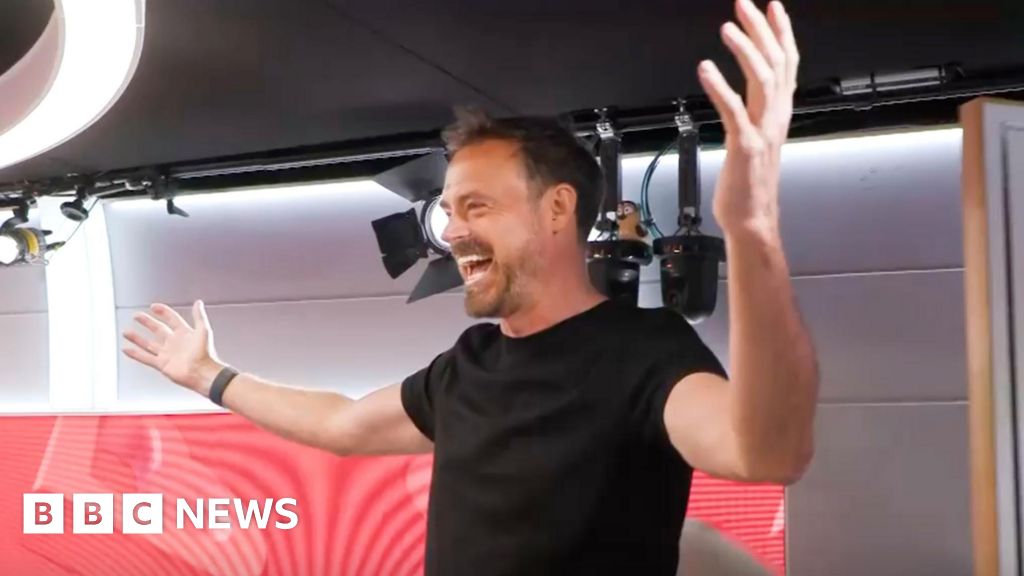





 English (US) ·
English (US) ·